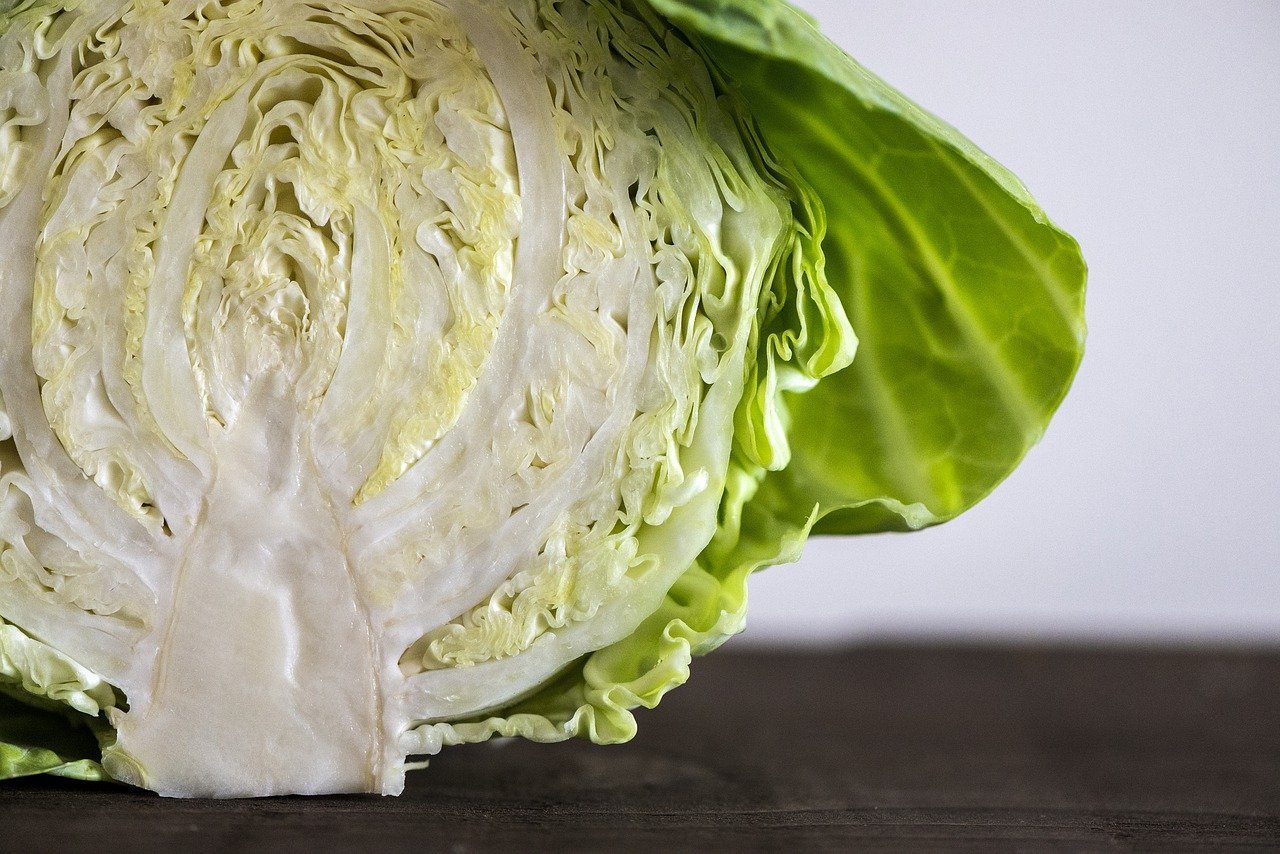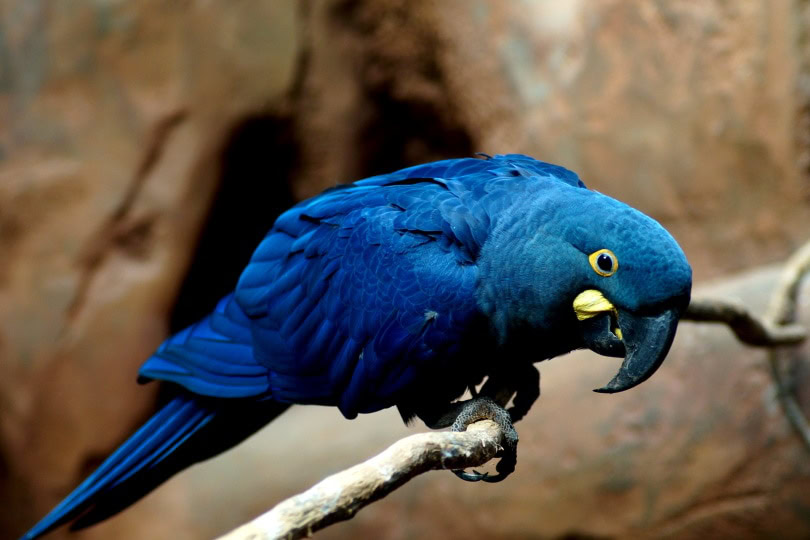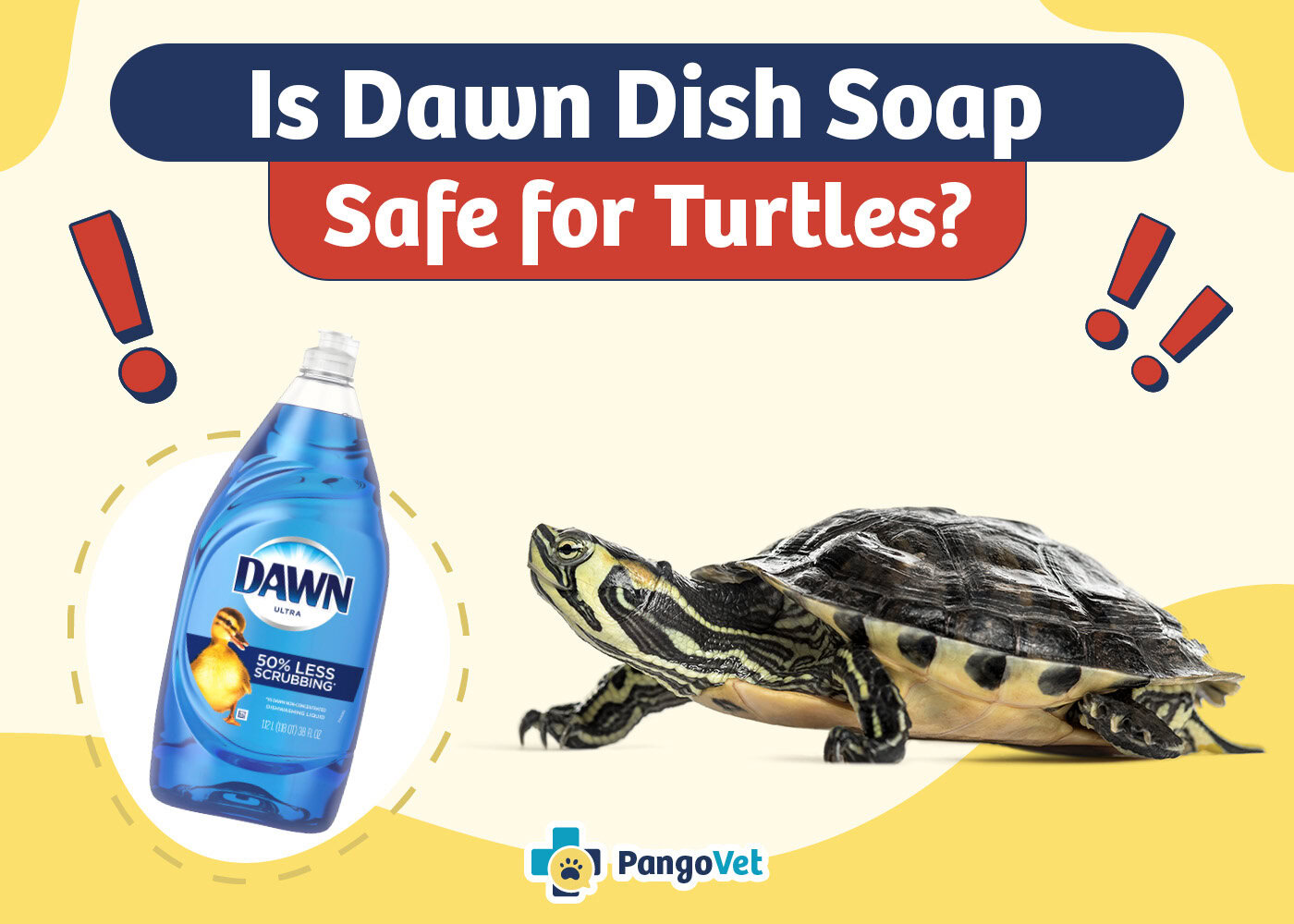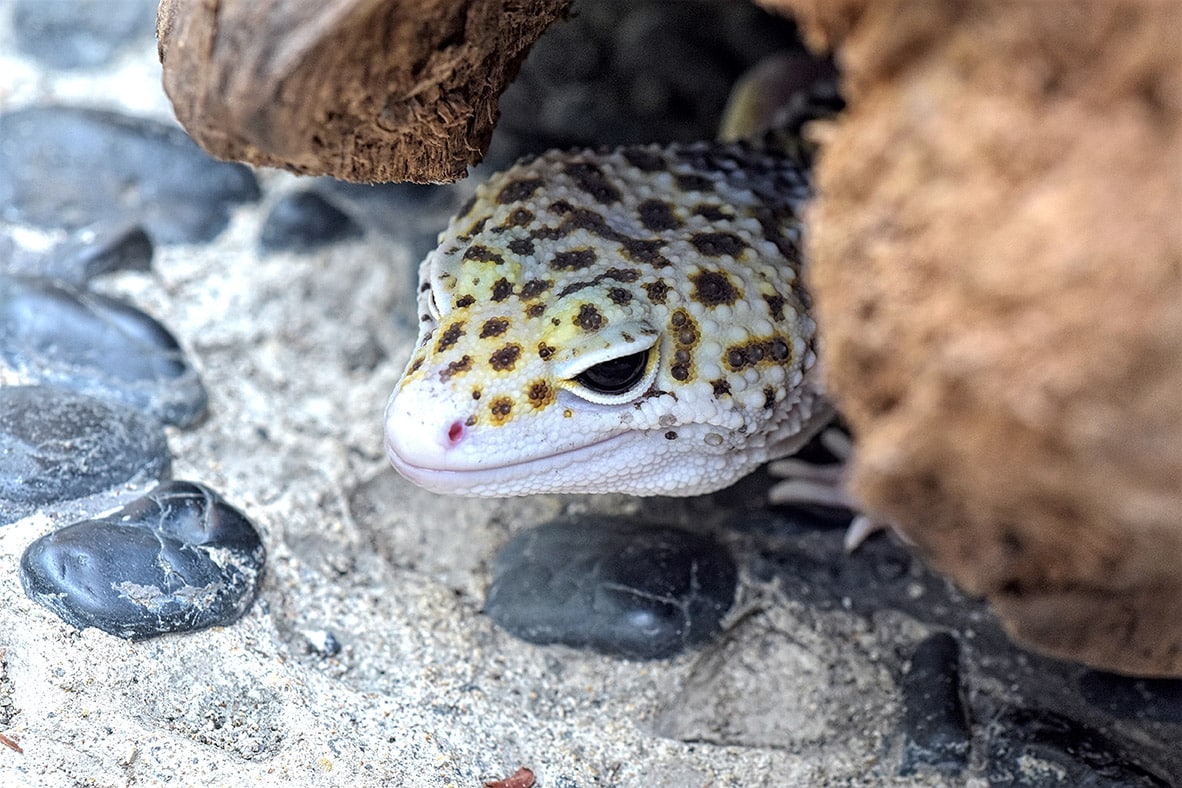VET APPROVED

The information is current and up-to-date in accordance with the latest veterinarian research.
Learn more »Iguanas are herbivores and eat a wide range of plant matter both under human care and in the wild. Ensuring that your iguana is fed the correct diet is important for their well-being and vitality. Since iguanas eat plant-based foods, it is believed that iguanas can eat foods like cabbage. However, cabbage is only safe for iguanas to eat in small, infrequent portions.
This article will help you determine if cabbage is safe to feed your iguana and how you can ensure that you are safely feeding the cabbage to them.

Can Iguanas Eat Cabbage?
Iguanas can eat cabbage, but it is not a great food source for them. Nutritionally, cabbage has little value. It primarily consists of water and contains fiber, vitamin C, and some calcium, which can be beneficial in small amounts. To put it simply, cabbage is not toxic and will not cause your iguana to become ill immediately or even if it is fed appropriately.
You can feed your iguana cabbage a few times a month in very small portions. You should provide your iguana with a varied diet of dark leafy greens, plus some vegetables and fruits to ensure that they receive a healthy dosage of antioxidants, vitamins, and minerals to remain healthy. Feeding small portions of cabbage alongside a variety of other nutritious foods for iguanas will help keep their diet balanced.
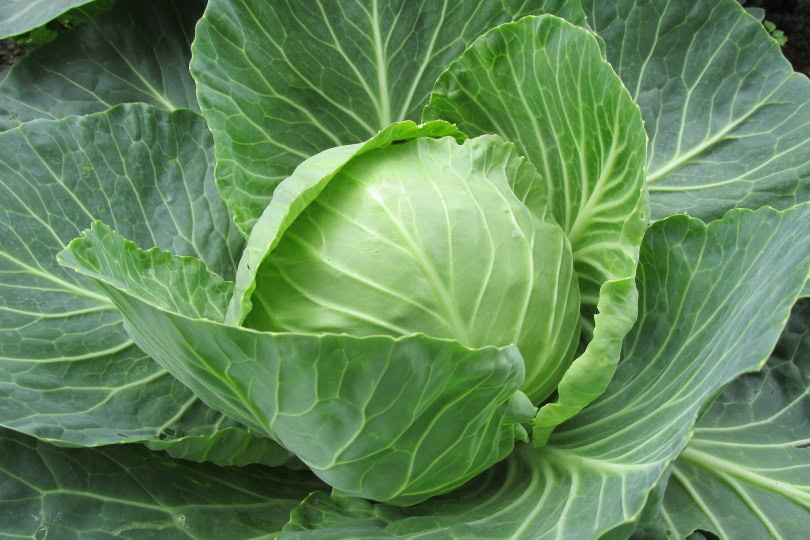
Is Cabbage Bad For Iguanas?
Cabbage contains chemicals that can lead to goiter or hypothyroidism in which the thyroid glands become enlarged and functions improperly. This chemical is known as goitrogens, and they affect iodine absorption which is linked to thyroid function. Therefore, cabbage should be fed in small amounts and a controlled manner. Cabbage is not necessarily bad for iguanas, but it is not completely healthy. If cabbage is fed as a long-term supplement to your iguana, you may run into some issues in terms of their thyroid health.
If you do want to feed your iguana cabbage, keep in mind that you should include a variety of leafy-green foods and a little bit of fruit to increase the variety in their diet. Too much of one food can be a bad thing, especially when it comes to feeding our iguana inadequate foods.
There is also a possibility that feeding too much cabbage to your iguana can cause gastrointestinal problems relating to digestion. Besides excessive gas, this can induce short-term diarrhea or moist stools due to cabbages’ high water content.
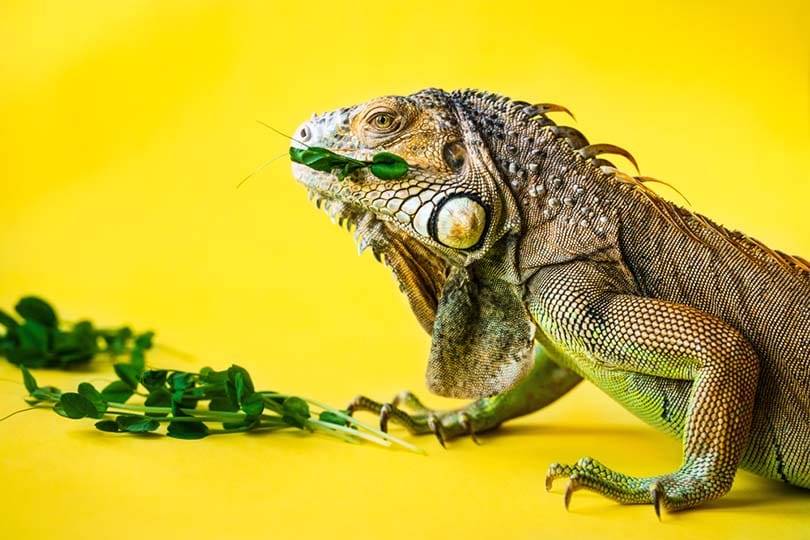

Pros & Cons Of Feeding Iguanas Cabbage
- Good for rehydration due to high moisture content
- Offers a rare treat for your iguana
- It provides your iguana with antioxidants such as vitamin C
- 10 gr of cabbage contains about 4 mg of calcium which can be beneficial to iguanas
- Inhibits iodine absorption
- Leads to goiter in iguanas
- Contains goitrogens
- Nutritionally poor
- Mostly water-based
- This may lead to digestion issues
- Diarrhea from high water content
What Should Iguanas Eat?
In the wild, iguanas will primarily eat the leaves from trees and vines. Occasionally they will eat flowers and fruits. Iguanas are hindgut fermenters and have specific microbes (bacteria and flagellate organisms) that inhabit their gastrointestinal tract to ferment high-fiber foods. This allows the nutrients from their food to be absorbed into their intestines where it is then used by their bodies.
Under human care, it is recommended to feed a variety of leaves, fruits, and flowers that replicate the diet they eat in the wild with the inclusion of commercial iguana pellets or canned foods.
Most of the diet should consist of leafy greens (80-90%), veggies and fruits (10-20%), and commercial iguana food (5-10%). Calcium-rich vegetables are ideal for iguanas, and this includes collard greens, kale, chard, romaine lettuce, and dandelion. Some vegetables such as broccoli, squash, green beans, and asparagus can be fed in smaller portions. Avoid feeding calcium-binding foods like spinach too often, as it can limit their calcium absorption.
Cabbage and other watery foods like cucumber should form a small percentage of their diet and be fed infrequently, or not at all.
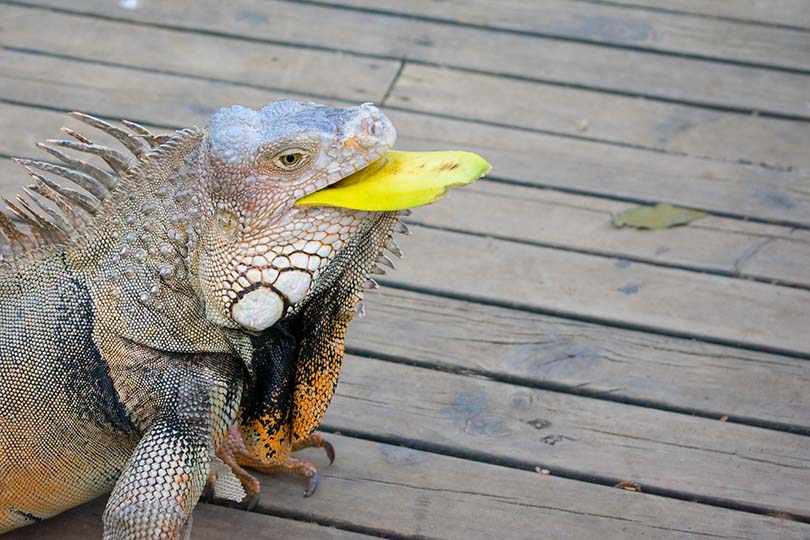

Conclusion
Now that we have determined that cabbage is safe for iguanas, but only in small amounts, you can begin to slowly introduce this food into your iguanas’ diet. Keep in mind that you should carefully plan your iguana’s diet to ensure that you are not accidentally overfeeding your iguana cabbage. If you provide your iguana with a high-quality vegetative-based diet, then including small portions of cabbage in their diet should have no ill effect on their health.
Featured Image Credit: Pixabay
